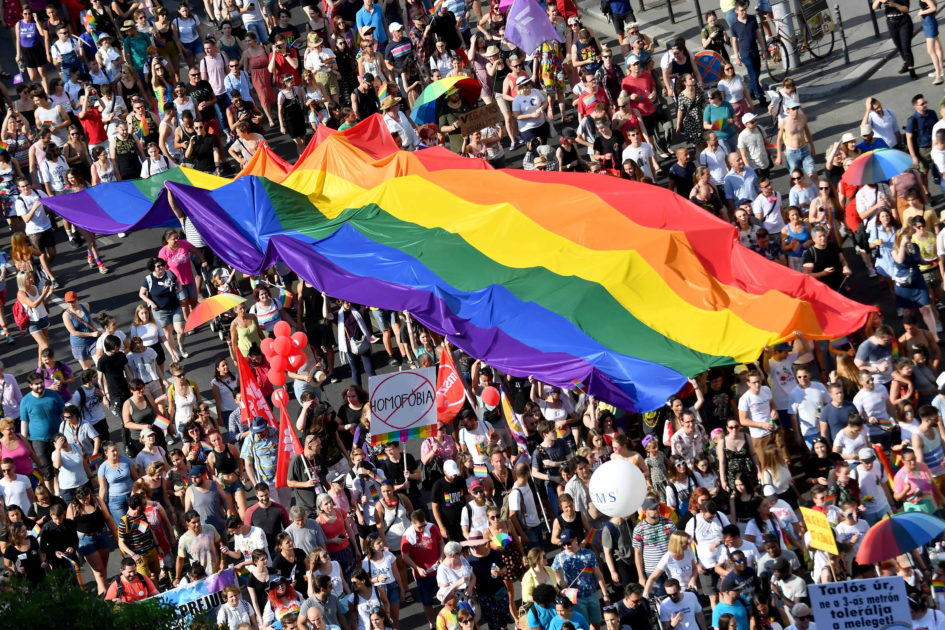New legislation bans the portrayal of homosexuality to under-18s, sparking backlash from human rights and mental health experts. Ed Holt reports.
Legislation that was passed on June 15 in Hungary banning the portrayal or promotion of homosexuality or sex reassignment to anyone under 18 years of age has been attacked by mental health experts and rights groups, who say it will worsen public opinion against an already marginalised LGBTQI minority, placing many in danger.Critics say the law is similar to controversial Russian legislation that, according to rights groups, has been used to shut down online information and mental health referral services for children, discouraged support groups and mental health professionals from working with youths, and led to an intensification of harassment and violence against LGBTQI people.“Our worry is that it will be like the Russian anti-LGBTQI propaganda laws and will be similarly detrimental for the LGBTQI community. We have seen a rise in trans and homophobic hate in the last year and a half. This law and the narrative that has flowed with it are a problem”, Aron Demeter, programme director at Amnesty International, told The Lancet.
The new law bans the “portrayal and promotion of gender identity different from sex assigned at birth, the change of sex, and homosexuality” in schools and in public service advertisements for anyone younger than 18 years. It was added on as an amendment to a separate, widely supported bill punishing paedophilia, which meant that it was difficult for opponents to vote against it and, crucially, appeared to conflate paedophiles with LGBTQI people.
It also comes as Prime Minister Viktor Orban, who faces an election next year, pursues increasingly radical social policies against minorities. Legislation was passed at the end of last year effectively banning adoption by same-sex couples and changing the constitutional definition of family to explicitly say that “the mother is a woman, the father is a man”.
A ban on transgender people changing their legal gender on documents was also brought in.Mental health experts in Hungary have been shocked by the latest legislation. Andras Kolto, an expert in LGBTQI youth health and member of the Hungarian Psychological Association, told The Lancet, “I was very angry when I heard about this law, especially as it had been added as part of legislation about paedophiles. The Prime Minister is deliberately conflating LGBTQI people and paedophiles—serving his political aims.” He added, “a number of factors affect a person’s mental health, but I am quite sure that the effect of the law on LGBTQI people’s mental health will be detrimental.”Kolto, and campaigners such as the Háttér Society—the country’s largest LGBTQI rights organisation—are concerned that there could be a rise in suicides among the community.
According to research by the group, 42% of Hungarian LGBTQI people have considered suicide, and 30% have attempted it. The Society pointed out that similar legislation introduced in Russia in 2013 had “increased the stigma, stereotypes, and invisibility surrounding sexual and gender minorities, the discrimination they face, and suicide rates among LGBTQI individuals”.Luca Dudits of the Háttér Society told The Lancet that students, especially, would suffer.
A 2017 study by the group showed that more than half of LGBTQI youth feel unsafe at school because of their sexual orientation, and 37% because of their gender self-expression. 13% were subject to physical abuse at school because of their sexual orientation and 10% because of their gender identity or gender self-expression. Dudits said the legislation will endanger the mental health of LGBTQI youth by making it harder for them to access sexual health education, information, and affirmative support, because services such as sensitivity training in schools now appear to be banned under the law. “These services are exactly the kind of thing that helps with bullying at school and promotes acceptance.
The government is taking this away”, Dudits said.“We fear youths will no longer have the opportunity to speak to people who have gone through things such as coming out in schools or similar settings. Many youngsters say that they were only able to come out because they were in a safe space. That space may now be taken away”, added Demeter.
Mate Mali, aged 18, from the southern Hungarian town of Pecs, who identifies as gay, told The Lancet that the law was “really scary”. “This is affecting my mental health in every possible way” he said. “Before, LGBTQI people were fighting to be treated as equals—nothing more, nothing less. Now, though, it is as if we are fighting just not to be banned. It’s like we have gone back to the middle ages.”
DOI:https://doi.org/10.1016/S0140-6736(21)01434-3

Leave a Reply